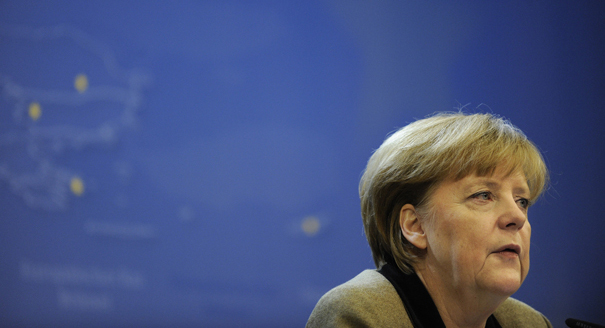Every week leading experts answer a new question from Judy Dempsey on the international challenges shaping Europe's role in the world.
Mark Dawsonprofessor of law, Hertie School of Governance
This of course depends on what one means by “integration”. France and Germany have traditionally had a very different understanding of this concept, with France adopting a highly intergovernmental vision of integration while Germany was willing to see a stronger role for supranational institutions. While we see grand plans for “integration” in the sense of handing ever greater authority to the European level, this transfer of authority, at Merkel’s insistence, is very much going down the intergovernmental path. Consider, for example, the outcome of the most recent euro summit: rather than make efforts to legitimize the transfer of power to European institutions, the talk is of bilateral “contracts” between particular member states and of ensuring accountability to national legislatures. At the same time, the European Council, rather than supranational bodies, continues to call the shots in setting and approving the Union’s legislative agenda. We have “integration,” but ironically at the cost of one of its foremost original ideals: that European integration, to succeed, could not be the creature of the member states alone but required democratic governance “beyond the state.”
Almut Möllerhead of the Alfred von Oppenheim Center for European Policy Studies at the German Council on Foreign Relations (DGAP)
The way I understand this week’s question is: has Chancellor Merkel turned her back on integration in the sense of supranational integration when it comes to finding remedies to the crisis?
The best answer to this comes from Merkel herself. In her November 2010 speech at the College of Europe in Bruges she said:
“[A] coordinated European position can be arrived at not just by applying the community method; sometimes a coordinated European position can be arrived at by applying the intergovernmental method. The crucial thing is that on important issues we have common positions.”
She strongly believes that working together as Europeans can take different shapes and forms, and that the “good Europeans” are not necessarily those who intuitively look for transfers of competencies to Brussels—that’s the essence of her “Union method”.
In the course of the crisis, commentators have often stressed what they see as Merkel’s preference for intergovernmentalism, referring to the Bruges speech. I am not sure that this is the full story. I wouldn’t rule out that Chancellor Merkel and her team are sincere when they think about strengthening the community pillar and talk about a stronger Commission or European Parliament—where necessary and feasible.
The challenge for Europeans will be to come up with a system of governance that reflects the fact that Europe’s nation-states simply won’t go away and that at the same time is reconcilable with the urgent need to work together more, and better, as Europeans. The “United States of Europe” are neither realistic nor desirable. Europeans have to come up with something more imaginative.
Jonas Parello-Plesnersenior policy fellow European Council on Foreign Relations
Despite a slow start, Merkel has been the stable anchor during the euro crisis. However much she has been the public face of brutal austerity cuts in countries such as Greece (remember the shouting protesters and Nazi drawings at her visit...), she has nonetheless managed to navigate the complicated interplay between financial markets (the Chinese primarily trusted her advice), European players, and her own lukewarm public opinion. Her detractors, led by Paul Krugman at the New York Times and Gideon Rachman at the Financial Times, will claim that Keynes’ visible hand should have been enacted, with extra public spending rather than the fiscal austerity that is apparently causing bigger deficits and economic slump.
The verdict is still out. Europe might prove to be the unexpected economic success story of 2013 because, as president of the European Central Bank, Mario Draghi pointed out in the European Parliament, the eurozone has the “best fundamentals”. Of course, the competition is somewhat weak with a deflating Japan, a “cliff-hanger” United States, and a fundamentally unsustainable China.
The year 2013 will also test Merkel's willingness to proceed with new steps on political union. If the eurocrisis recedes, then there might be the temptation, particularly in a German election year, to slow the move towards political union beyond fiscal and banking policies.






